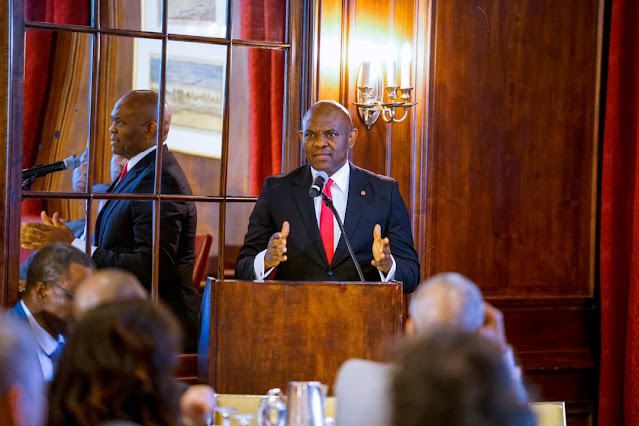'Africa is unstoppable. Africa is an essential part of global business and a major investment destination. Africa includes some of the world’s fastest growing economies. And Africa has more – much more – to offer. Every sector of the African economy is growing – from manufacturing to agriculture, from services to finance. The continent’s vibrant, young population represents a dynamic workforce and a massive consumer and business market. And the Africa Continental Free Trade Area Agreement will further accelerate investment and trade opportunities. The world must see Africa for what it is: a land of enormous potential and resources.'
The words above by the Secretary-General of the United Nations, António Guterres at the Global Africa Business Initiative (GABI) which held last week at the 77th United Nations General Assembly set the tone for Africa and African Trade
Last week, leaders
from around the world will come together to focus on global challenges and zero
in on global solutions at the 77th
United Nations General Assembly.
The global economy has
taken a hit in the past 2 years, from COVID-19 to the Russian-Ukraine crisis, our world has been plagued with growing
inequalities, global inflation, a
cost-of-living crisis, and the reversal of the Sustainable Development Goal.
However, with
the African Continental Free Trade Area, we see an opportunity to drive
intra-Africa trade and creating an unparalleled momentum for Africa’s economic
diversity and transformation. We know that industrialisation is the way to go
and, with the single market as the added incentive, the world must
see Africa for what it is: a land of enormous potential and resources.
As often advocated by the
Group Chairman, Tony O. Elumelu and reiterated in his sessions at UNGA
77 - working together, Governments by creating the enabling environment and the
private sector by investing in critical
sectors guided by the philosophy of Africapitalism can create
the conditions for success.
Now is the time for innovation with the AfCFTA underway, for new public-private partnerships and there are opportunities in all sectors – from
education and healthcare to finance and services.
The
role of the banking sector in this process is a central driver of this change
and simultaneously be heavily impacted by it. In Nigeria, the United Bank for Africa (UBA)
Plc ranks
No. 1 in export banking among Nigeria’s deposit money banks (DMBs) for three
consecutive years as at FY 2021 facilitating $1.34 billion non-oil export
for that year alone. This was 31 percent of total non-oil export volume for
2021 making it the highest since 2019. This
comes on the heels of the bank’s robust export financing scheme designed to
boost local productivity and diversify the sources of foreign exchange earnings
From a US$200 million Non-oil export
trade financing programme to bridge working capital requirements of
SME/commercial exporters at concessionary interest rate and favourable
collateral structure, and Provision of project & structured trade financing
to enhance export capacities of manufacturing as well as commodity aggregators, to a dedicated
export desks and an export manager for our business to lead the charge of our
export business arrangements and UBA Afritrade – to facilitate regional trade
and settlements that start and end within the UBA ecosystem across Africa.
UBAs partnership with Export focused
Agencies in Nigeria CBN/NEPC/NIRSAL and
as the Pilot
bank to AfCFTA/PAPSS to facilitate Regional Trade payments across Africa,
commencing in 5 Countries (Nigeria, Ghana, Guinea, S/Leone and Liberia) will place the bank at the forefront of driving the commencement
of cross-border
transactions with the new Pan-African Payment and Settlement System in the
fourth quarter of 2022.
Perhaps the biggest effect of the AfCFTA on the African banking
sector is the Pan-African
Payment and Settlement System (PAPSS), a centralised payment and settlement system that
was launched by Afreximbank with the support of the AfCFTA Secretariat that would
facilitate and improve intra-African trade and commerce payments as making
payments across border could sometimes be a challenge.
This opportunity as the pilot bank is set to bring about a growing number of supply chain
finance opportunities in the coming years.
With UBA at the heart of the AfCFTA’s attempt to create a single
continental market for goods and services that will hopefully optimise the use
and allocation of resources and will make the trade area a success and more effective at supporting African economic
development.




0 comments:
Post a Comment